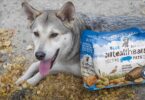What makes a plant beneficial for one animal but risky for another? Consider the iconic Australian evergreen known for its sharp scent and medicinal properties. While koalas thrive on its leaves, household pets face hidden dangers lurking in this natural resource.
Native to Australia, this tree has been used for centuries in remedies and wellness practices. Its oil contains eucalyptol, a compound that supports respiratory health in humans. But the same substance can overwhelm a dog’s system, leading to toxicity even in small amounts.
Pet owners often encounter this ingredient in diffusers, cleaning products, or topical treatments. Understanding its effects requires clarity on how animals process plant-based compounds differently. Unlike koalas, canines lack specific enzymes to break down certain chemicals found in the leaves and oil.
This guide explores the origins of the tree, its modern applications, and critical safety measures. Learn why proper dilution matters, how to spot risky products, and when to consult a veterinarian. Knowledge empowers responsible choices—ensuring furry companions stay healthy while harnessing nature’s benefits.
Understanding Eucalyptus: Origins, Uses, and Varieties
This resilient plant thrives across continents today, but its story began in Australia’s ancient landscapes. Belonging to the Myrtaceae family, it adapts to diverse climates—from arid regions to tropical forests. Over 700 species exist, each with unique traits shaping their roles in nature and human life.
Historical Background and Medicinal Properties
Indigenous communities harnessed its power long before modern science. For millennia, they brewed remedies from its leaves to treat wounds and respiratory ailments. Steam distillation techniques later unlocked concentrated oil rich in eucalyptol—a compound still prized for clearing airways.
Different Species and Their Characteristics
Eucalyptus Globulus dominates medicinal applications due to high eucalyptol content. Lemon Eucalyptus offers a citrus twist, often used in repellents. While some varieties grow towering heights, others remain shrub-like, influencing how their oils are harvested and applied.
Household Applications of Eucalyptus and Its Essential Oils
Modern homes frequently use these oils in diffusers for fresh scents or natural cleaning solutions. Blends with citronella repel mosquitoes effectively. Always dilute concentrated forms, especially around pets, as their systems process plant compounds differently than humans.
Is Eucalyptus Safe for Dogs?
Plants beneficial to humans can pose unexpected risks to our four-legged companions. The aromatic evergreen contains eucalyptol, a compound listed by the ASPCA as toxic to animals. This substance disrupts canine nervous systems even in small doses, making vigilance essential for pet owners.
Toxic Compounds and Why They Pose a Risk
Eucalyptol acts as a neurotoxin when ingested by animals. Found in leaves and concentrated oils, it overwhelms a dog’s metabolism. Unlike humans, canines lack enzymes to process this chemical efficiently. Even diffused oils or cleaning sprays may trigger reactions.
Identifying Symptoms of Poisoning
Early signs include excessive drooling and gastrointestinal distress like vomiting. Watch for lethargy or unsteady movement progressing to seizures. Immediate vet consultation is critical—delayed treatment risks liver damage.
Authoritative sources like the ASPCA confirm these dangers. Store household items containing this plant out of reach. If exposure occurs, contact animal poison control or your veterinarian without delay.
Safe Practices: Guidelines and Precautions for Pet Owners
How can you balance the benefits of natural products with your dog’s well-being? Start by prioritizing informed decisions. Simple adjustments to daily routines and product choices create safer environments for curious pets.
Proper Use and Dilution of Essential Oils
Always dilute concentrated oils before use. Veterinarians recommend ratios of 0.5% to 1% for dogs—about 3-6 drops per ounce of carrier oil. Undiluted formulas risk skin irritation or respiratory distress. Check product labels for pre-diluted options designed for pet-friendly spaces.
Diffusers require careful placement. Keep them in high, ventilated areas away from bedding or play zones. Limit diffusion to 10-15 minute intervals and observe your dog’s behavior. Avoid using oils around puppies or pets with existing health conditions.
Advice from Veterinarians and Animal Health Experts
Consult a vet before introducing any new product containing plant extracts. They assess individual risks based on breed, age, or medical history. Veterinary technicians often suggest alternatives like diluted lavender for calming effects without harsh compounds.
Store oils in locked cabinets—dogs can chew through bottles. If using cleaning sprays with eucalyptol, restrict pet access until surfaces dry completely. Professional guidance ensures tailored solutions for multi-pet households.
Emergency Actions If Exposure Occurs
Act swiftly if your dog licks oil or shows symptoms like drooling or lethargy. Wipe their mouth with a damp cloth and call the Pet Poison Helpline (888-426-4435). Do not induce vomiting unless instructed.
Keep product labels handy to share details with poison control. Transport your pet to a clinic if advised—bring the oil bottle for reference. Quick intervention often prevents severe complications.
Wrapping Up: Key Takeaways for Protecting Your Pet
Balancing home wellness with pet safety requires informed choices. While this aromatic plant offers benefits in human care, its concentrated oils contain eucalyptol—a compound toxic to canines. Even diluted formulas demand extreme caution and professional guidance from a veterinarian.
Always verify product labels for pet-safe formulations, like hypoallergenic wipes containing properly diluted extracts. Store essential oils in secure locations, and avoid diffusing them near resting areas. If your dog shows vomiting, lethargy, or coordination issues, contact animal poison control immediately.
Trustworthy resources like the ASPCA emphasize that prevention beats treatment. Consult your vet before introducing any new plant-based products at home. Reliable information and swift action empower owners to create safer spaces for their companions.
Final advice? Prioritize vet-approved alternatives and maintain open communication with animal health experts. When in doubt, choose caution—your furry friend’s well-being depends on it.
FAQ
Can dogs get sick from chewing eucalyptus leaves?
Yes. The compound eucalyptol in these plants can cause drooling, vomiting, or diarrhea. Severe cases may lead to lethargy or difficulty walking. Contact your vet immediately if your pet ingests any part of the plant.
Are diffused eucalyptus oils harmful to pets?
Diffusers release airborne particles that can irritate a dog’s respiratory system. Always use oils in well-ventilated areas, and avoid direct exposure. Consult your veterinarian before using essential oils in pet-friendly homes.
How quickly do poisoning symptoms appear after exposure?
Signs like nausea or weakness often emerge within 2–4 hours. Delayed reactions might occur if small amounts are ingested. Monitor your companion closely and seek urgent veterinary care if symptoms worsen.
Can I keep a eucalyptus plant in my yard with dogs?
It’s risky. Curious pets might nibble leaves or bark, leading to toxicity. Opt for non-toxic alternatives like spider plants or Boston ferns. If you have existing eucalyptus, fence it off to prevent access.










Leave a Comment